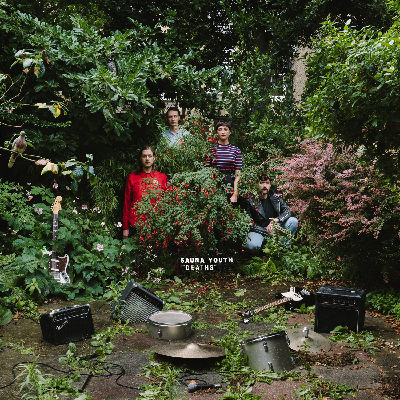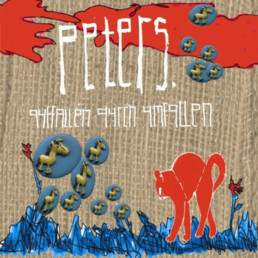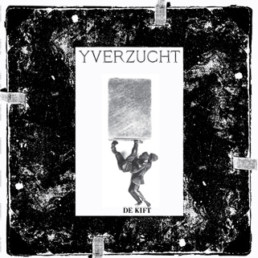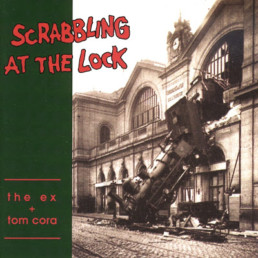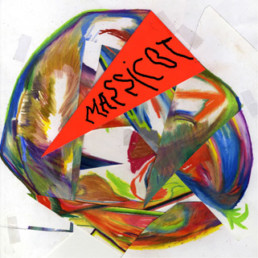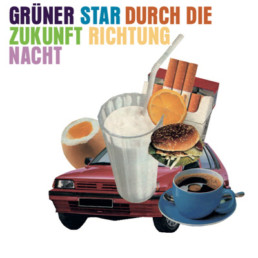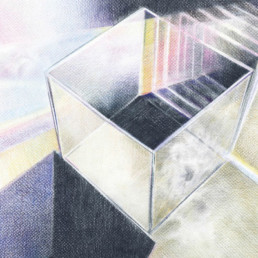Description
The final part in a trilogy of LPs that started with Dreamlands in 2012 (wide-eyed, naive beginnings introducing listeners to the world the records inhabit), followed by Distractions three years ago (what happens while you’re heading towards a destination, the unknowns, the unexpected outcomes), the songs that comprise Deaths are collectively about the act of finishing, an ode to ‘the ending’.
Creating this album was a working research project embodying what is sometimes the hardest part of musical endeavour: completing a record. Making a new album is always daunting, but when all band members also have full-time jobs and other commitments it can also seem logistically impossible. Then there is the nagging, unattainable perfectionism that can draw out a record for months or even years – an experience that didn’t bear repeating. When is something finished? Is finishing necessary to move on?
The album was created and facilitated through a series of deadlines. The recording studio was booked before any songs had been written. Having a deadline in advance allowed for productive freedom through limitation and finite time: five months to write the album, that was it. This meant meeting every week to write no matter how many members could make it, filling in on each other’s instruments (reminiscent of how side-project Monotony came about: writer’s block in a Sauna Youth practice – removing yourself from your role in a band removes the old expectations) and using automatic writing processes.
The limited time didn’t allow for much reflection and overworking. Placeholders became final tracks through committing to songs at early stages, keeping them immediate. The album is site and time specific – those months in an archway in Peckham, which live on through samples including amp interference from trains passing overhead. It’s also very much of this specific point in history, influences, and band members’ lives. This process created a tension through trusting decisions and not questioning what was produced.
The 12 tracks touch on political rhetoric, artistic legacy, action and passivity, work and leisure, and, of course, distraction, referencing many musical genres in the process while never leaving punk’s orbit. Creative living becomes more gruelling and endless than the 9 to 5 on ‘Leisure Time’, how freelance living and having multiple jobs both result in no free time. Being in a band is leisure time, but can be a lot of work. Our lives should afford us with time, but we fill it with activity.
‘No Personal Space’ looks at the cyclical nature of music, referencing ‘New Rose’ – the first single by a British punk band – via a drumbeat and lyrics, exploring the enclosure of the genre; a blown out recording of practising constantly interrupts the band. ‘Percentages’ was written at a point of political and social upheaval and problematizes the use of numbers as a form of proof. Whole groups of people have been reduced to statistics for political reasons, and people use and manipulate statistics to prove any point they want. ‘In Flux’ is about whatever is opposite to creativity, what kills it dead, the communication of a song or a piece of art can kill it, even trying to see an idea through to its conclusion can be what kills it.
The pure pop number ‘Laura’, according to Jonah Falco who mixed the record, sounds like “The Desperate Bicycles went to graduate school in the fields of Salisbury while being yelled at by two sides of their conscience, oddly enough, telling them the exact same thing.” ‘Problems’ – a former Monotony song – reduces the punk song to its essential elements, aiming to sound like being inside a brake factory and repeating ‘Problems’ until it has rendered the word completely meaningless. The album ends with a wild and playful rejection of patriarchy and a frustration with those who uphold it either willingly or through inaction in the form of the unhinged Theatre 83. It’s like English music hall meets ‘We’re A Happy Family’ by The Ramones.
Like the previous two albums, Deaths includes writing put to music. ‘Swerve’ and ‘The Patio’ are extracts from a short story written by band member Ecke about the murder of an artist whose estate is overseen by her ambitious sister, and is read by writer and frontperson of Marcel Wave, Maike Hale-Jones. Samples are as important as they ever were – this time including the aforementioned electrical interference, recordings of practice and YouTube videos of lawnmowers and cafe noise that people (including members of the band) listen to while working to distract their mind in order to focus.
An album once finished is frozen in time, solid and no longer resistent or adaptive to outside forces. Does the difficulty to find an end come from the genre, from punk’s revisionist impulse, redoing the same thing over and over? Do we avoid an ending because playing in a band is a distraction from everyday life?


